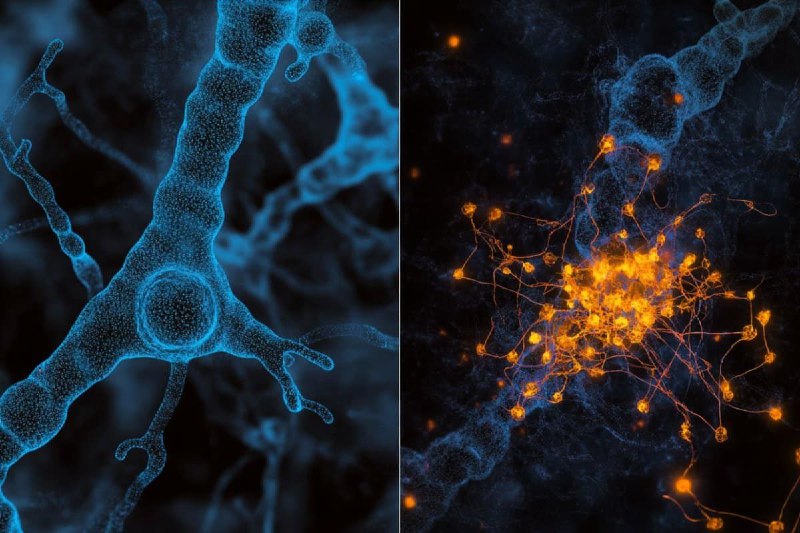Tiny Genetic Code Disruption Alters Brain Wiring and Behavior
A small genetic sequence called mini-exon B plays a surprisingly crucial role in how neurons form synaptic connections, according to new research. Scientists found that deleting this four–amino acid segment from a synapse-building protein, PTPδ, disrupted neural activity and led to anxiety-like behaviors in mice.
The mini-exon enables PTPδ to bind with another protein, IL1RAP, forming a complex critical for excitatory synapse development. This discovery helps explain how subtle changes in genetic splicing may contribute to neurodevelopmental disorders like autism, ADHD, and OCD.
🆔@neurocognitionandlearning
>>Click here to continue<<

